[ad_1]
Dr Xiaojun Zhang, team leader of XJTLU Entrepreneur College (Taicang), announced a three-year development plan for the College.
The plan consists of five goals: upgrading Syntegrative Education (SE) in learning and teaching, strengthening industry-oriented research, reinforcing partnerships with industry partners and the government, promoting the image of the College to the general public, and developing entrepreneurial culture on campus.
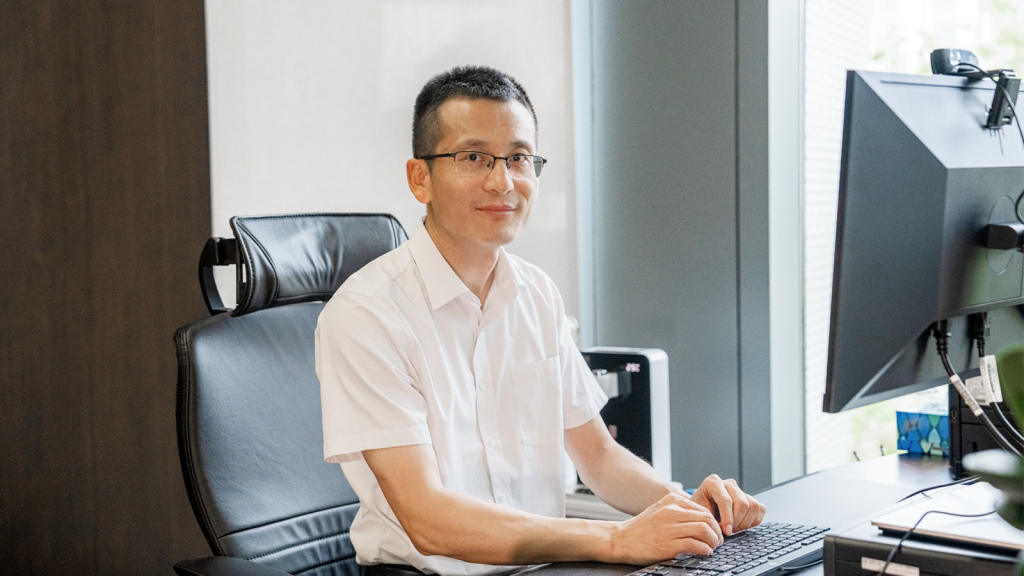 Dr Xiaojun Zhang in his office at XJTLU Entrepreneur College (Taicang)
Dr Xiaojun Zhang in his office at XJTLU Entrepreneur College (Taicang)
A three-year plan
Dr Zhang explains that it will take a collective effort to achieve the goals, involving academics, students, administrative staff members of XJTLU, industry partners, and the government of China.
“We will incorporate more real projects from the industry into our teaching curriculum, so that students can be hands-on when solving real-life challenges,” he says.
The College has a Business Development (BD) team tasked with bridging the gap between academic research and industry projects, in the hope of deepening external cooperation and communication with industry partners.
“The BD team allows academics to know about the difficulties that industry partners encounter, and share with industry partners the capabilities and resources the College has to offer,” Dr Zhang explains.
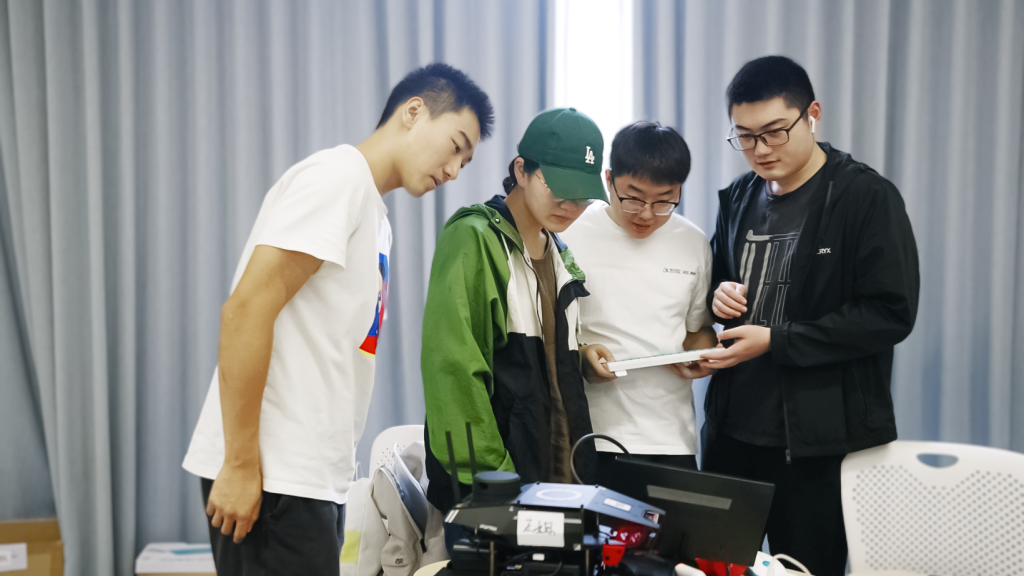 Students from the School of AI and Advanced Computing are working on a project during the Professional Development Programme (PDP)
Students from the School of AI and Advanced Computing are working on a project during the Professional Development Programme (PDP)
To bridge internal cooperation and communication, Dr Zhang pays close attention to brand promotion and campus culture building at the College.
“We plan to share more innovation and entrepreneurship stories, whether it be student experience or research news. In this way, current and prospective students of XJTLU will learn more about our achievement in industry-led research projects and unique teaching curriculum,” Dr Zhang says.
“The College has been hosting regular activities for academics and students to keep them updated with new research ideas, projects and outcomes. Open communication presents a valuable opportunity to exchange ideas, get insights into various ongoing research projects, and foster research collaboration between them,” Dr Zhang adds.
 XJTLU Entrepreneur College (Taicang) Open Day
XJTLU Entrepreneur College (Taicang) Open Day
What’s new in XJTLU 2.0
In September, the College launched the X3 CoVenture Incubator, a platform that empowers start-up projects led by students. X3 refers to the three stages that students will go through to realise their entrepreneurial dreams.
According to Assistant Professor of Practice Zhongjie Hu from the Entrepreneurship and Enterprise Hub, the incubator will first host regular events, such as the Innovation Salon and the Innovation Forum, providing students a space to exchange ideas.
Next, industry experts and academics will coach students with their projects. Currently, the College is developing a support plan for those practical projects when it comes to the final stage of incubation.
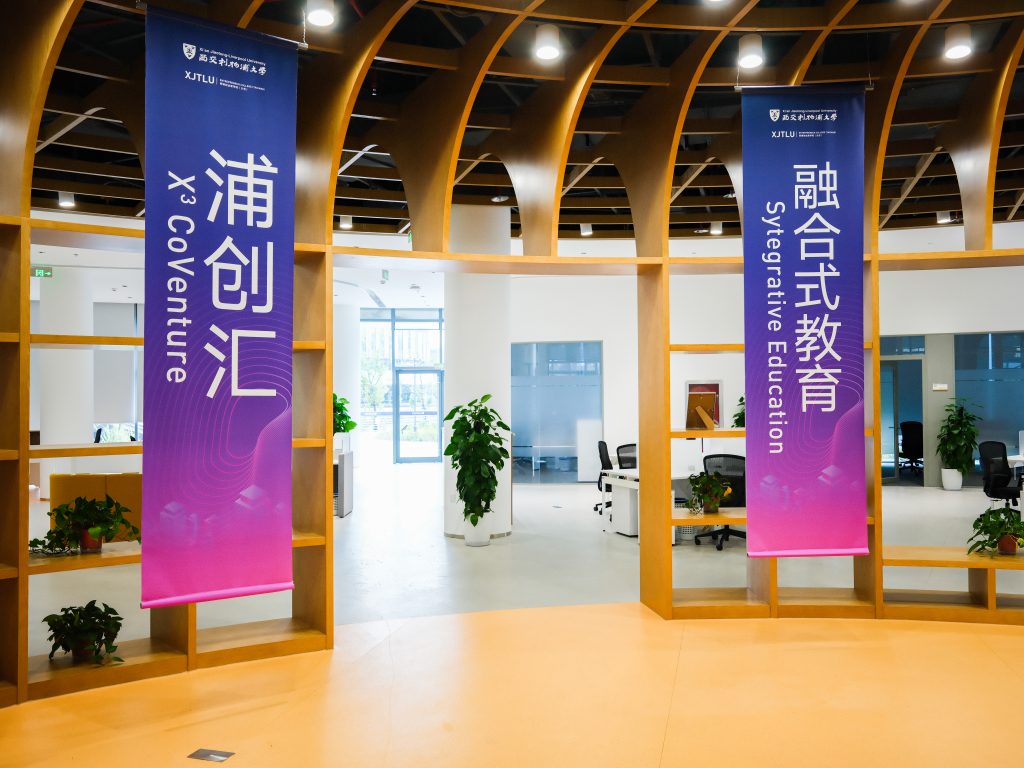 X3 CoVenture Incubator is located on the ground floor of Building C, XJTLU Entrepreneur College (Taicang)
X3 CoVenture Incubator is located on the ground floor of Building C, XJTLU Entrepreneur College (Taicang)
In the coming months, the College will also establish the Innovation Factory and the Syntegrative Project.
“The Innovation Factory is an initiative to integrate the facilities and resources of over 40 laboratories at the College. Students can apply to use the laboratories to implement creative ideas, and gain guidance from academics of XJTLU,” says Dr Zhang.
“It doesn’t have to be a promising or mature project, students are more than welcome to use all the facilities on campus to work on projects or even vague ideas they are interested in,” Dr Zhang says.
“If a project can be developed into a business idea, the X3 CoVenture incubator will equip the project with the right tools, tactics, and resources to become a start-up business,” he added.
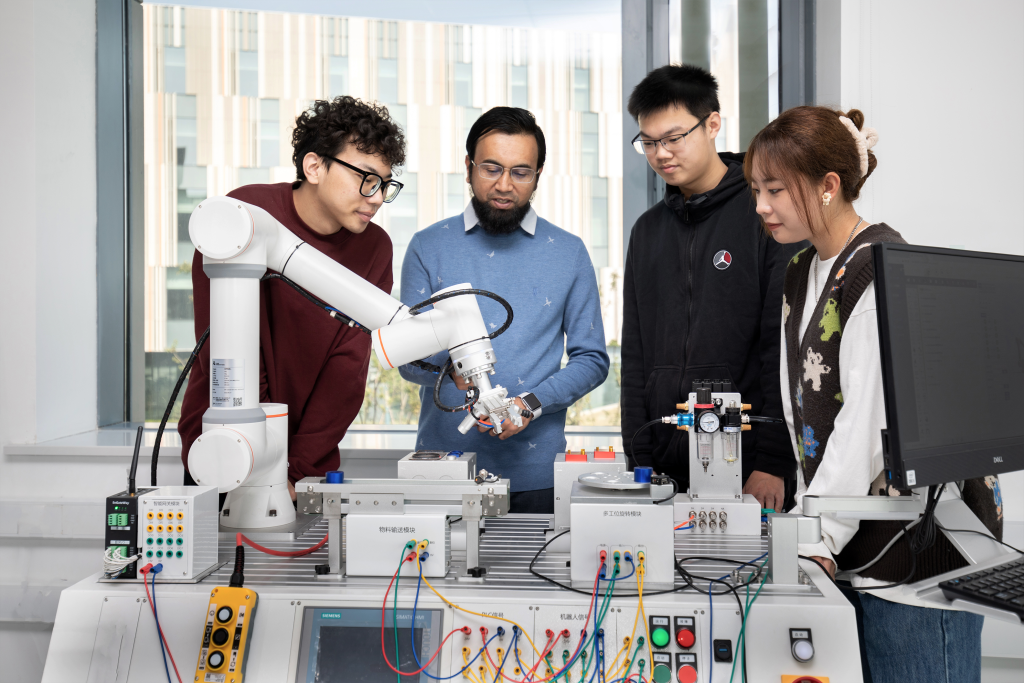 Dr Kazi Mostafa, assistant professor from the School of Intelligent Manufacturing and Ecosystem, teaches students at a laboratory
Dr Kazi Mostafa, assistant professor from the School of Intelligent Manufacturing and Ecosystem, teaches students at a laboratory
“The Syntegrative Project will combine real projects from industry with teaching curriculum, rather than just having students to touch on the projects during summer holidays. A deeper partnership between the College and industry experts will give students more opportunities to strengthen their problem-solving skills,” Dr Zhang explains.
To enhance teaching and learning activities, Dr Zhang says that the Syntegrative Education Centre of Excellence is a team-based idea, where academics and industry experts work together in teams, designing and delivering courses that train problem-resolving skills for all XJTLU students.
XJTLU will also provide fundings to academics and industry experts who collaborate on pragmatic research projects.
Currently, the Centre is scrutinising 13 projects, involving academics from the College and industry experts from Haier Group, DeepBlue Technology, and 3Srobotics Co., Ltd.
“From the Innovation Factory to the X3 CoVenture incubator, these are the most up-to-date examples of the XJTLU 2.0 education model at XJTLU Entrepreneur College (Taicang),” Dr Zhang concludes.
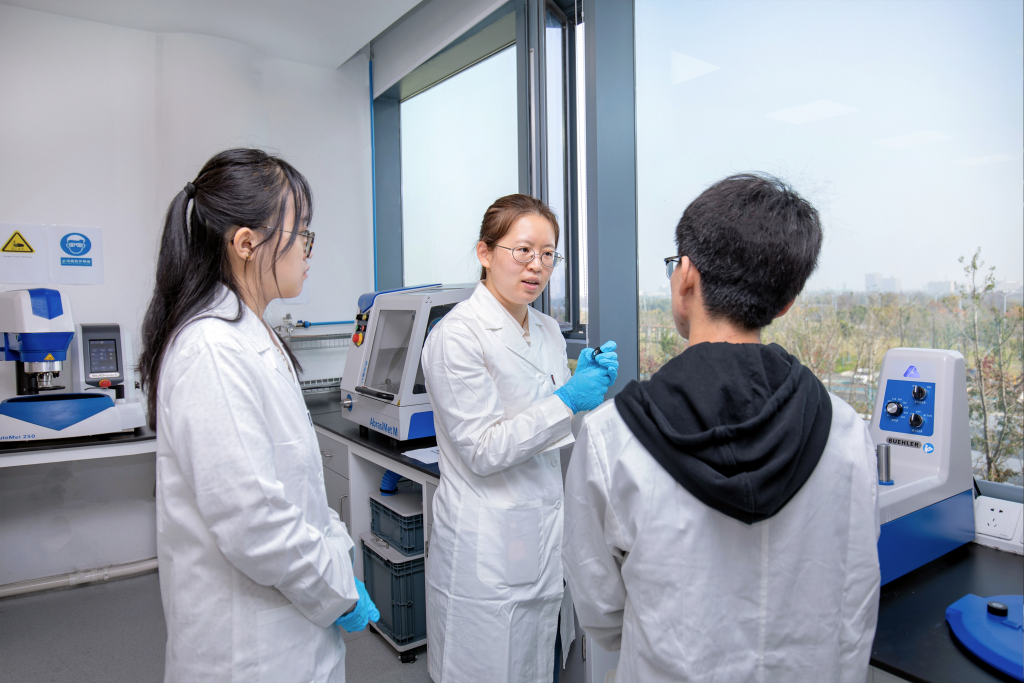 One of the laboratories at XJTLU Entrepreneur College (Taicang)
One of the laboratories at XJTLU Entrepreneur College (Taicang)
XJTLU 2.0 education model
XJTLU 2.0 refers to the implementation of Syntegrative Education, a teaching and learning method of XJTLU. It combines professional education with industry-oriented education, cultivating industry leaders for future technology.
“In July, the College saw its first cohort of graduates, which means it is the perfect time to review and reinforce the XJTLU 2.0 education model,” says Dr Zhang.
By Haolun Xu
Edited by Precious Chibeze and Patricia Pieterse
[ad_2]
Source link
